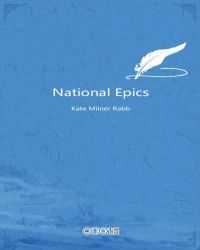THE AENEID.
您可以在百度里搜索“National Epics 艾草文学(www.321553.xyz)”查找最新章节!
THE AENEID.
The Aeneid was written by Publius Vergilius Maro, commonly known as Vergil, who was born at Andes, near Mantua, Oct. 15, 70 B. C., and died at Brundusium, Sept. 22, 19 B.C.
He was educated at Cremona, Milan, Naples, and Rome. When the lands near Cremona and Mantua were assigned by Octavianus to his soldiers after the battle of Philippi, Vergil lost his estates; but they were afterwards restored to him through Asinius Pollio.
He became a favorite of Augustus, and spent part of his time in Rome, near his patron, Maecenas, the emperor's minister.
Vergil's first work was the Bucolics, in imitation of Theocritus. His second work, the Georgics, treats of husbandry. The Aeneid relates the adventures of Aeneas, the legendary ancestor of the Romans.
The Aeneid is in twelve books, of which the first six describe the wanderings of Aeneas, and the last six his wars in Italy. Its metre is the dactyllic hexameter.
Vergil worked for eleven years on the poem, and considered it incomplete at his death.
The Aeneid tells the story of the flight of Aeneas from burning Troy to Italy, and makes him an ancestor of the Romans. With the story of his wanderings are interwoven praises of the Caesars and the glory of Rome.
It is claimed that because Vergil was essentially a poet of rural life, he was especially fitted to be the national poet, since the Roman life was founded on the agricultural country life. He also chose a theme which particularly appealed to the patriotism of the Romans. For this reason, the poem was immediately received into popular favor, and was made a text-book of the Roman youths. It is often said of Vergil by way of reproach, that his work was an imitation of Homer, and the first six books of the Aeneid are compared to the Odyssey, the last six to the Iliad. But while Vergil may be accused of imitation of subject matter, his style is his own, and is entirely different from that of Homer. There is a tender grace in the Roman writer which the Greek does not possess. Vergil also lacks that purely pagan enjoyment of life; in its place there is a tender melancholy that suggests the passing of the golden age. This difference of treatment, this added grace and charm, which are always mentioned as peculiarly Vergil's own, united with his poetical feeling, and skill in versification, are sufficient to absolve him from the reproach of a mere imitator.
The Aeneid was greatly admired and imitated during the Middle Ages, and still retains its high place in literature. National Epics
